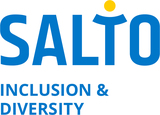Methods for Follow up
- Add your methods and practices for follow up, closure and re-integration at the bottom of this page (log in with your SALTO username or create one)
The follow-up phase begins once the young people return home from abroad. This phase can be the most difficult of the entire international experience, because it is in this phase that a young person has to process their learning and make their next steps along their personal pathway.
Although the act of evaluating is actually quite short, the larger process of digesting and processing the international experience can take some time. This is especially the case for young (ex-) offenders and those at risk of offending. They often need support from their youth worker (or other worker) to recognize the learning that has taken place and to guide their next steps.
^^ top ^^
Listed below are some simple methods which can be used at different stages of the evaluation and follow-up phase:
Closure
- Spending a period abroad, can be a very intense experience. A good first step in the evaluation/follow-up phase is to round-off or close the international experience. This can be done at the end of the international project by organising a final party.
- During the final party, or during a small ceremony, present the young person with a certificate, called "Youtpass" to mark their achievement in the project. For example: all EVS volunteers receive a Youthpass certificate which describes and validates the non-formal and informal learning experience acquired during the project.
Youthpass
"Through the Youthpass the European Commission ensures that the experience with the Programme is recognised as an educational experience and a period of non-formal learning and informal learning. This document can be of great benefit for the future educational or professional pathway of the participant."
Every young person can ask for such a certificate. The content of the certificate should be agreed between the young person and his/her mentor of the host organisation.
- Download the Youthpass from the website: www.youthpass.eu
- More to find about the recognition of non-formal learning in the youth field on: www.youthandrecognition.eu.
^^ top ^^
Evaluation and reflection
Evaluation is a process that needs to start at the very beginning of a project. Here are some tips and methods to set the process in motion:
- If some of the young people are fond of writing, have them keep a daily diary. At the end of the project, ask them to review what they have written to see if they can identify any changes in their behaviour, beliefs, attitudes, skills, etc. If the young person has difficulties with writing, they can also draw a daily picture, or make a weekly collage out of images in magazines to represent events and emotions.
- Encourage the young people to think about their future at all stages of the international project. The future is not something to be kept until the very end. This can be done informally by asking them what they are thinking, which direction their thoughts are going. In the evaluation stage they should look back on the plans they had at the beginning and consider to what extent those plans have/have not changed. The effect of this is stronger in longer projects, but even after only a few weeks it can be very insightful for the (ex-) offender or those at risk of offending.
- The practical aspects of the international experience (daily activities, accommodation, skills learned, etc) are easier to evaluate than others (for example, the intercultural experience). But a picture can speak a thousand words... To evaluate the intercultural experience, give the young people a disposable camera. Have them take photos of people, places, and things in their project which are important to them or which made a strong impression on them. Use the photos to start a discussion about differences and similarities between countries and between cultures.
- At the conclusion of the project, help the young people make an inventory (list) of the skills they learned. Help them identify how that learning can help them take their next steps along the pathway (in finding a job, gaining a qualification, within their family situation, etc.)
- After a group exchange or if there are several volunteers returning at once, it can often be very useful to organise a group evaluation. It is very helpful for these young people to be supported by peers who have had similar experiences. Be aware that the group situation can have a negative as well as a positive impact.
^^ top ^^
Integration
Like evaluation, integration is a process that starts on the very first day of the project.
- Before the (ex-)offenders or those at risk of offending travel abroad, their organisation should spend time with them considering their pathway and making a follow-up plan for the post-project phase. This should include ideas as to what should happen, when, which steps have to be taken, how long, etc. Some steps can already be set in motion before they depart. Bear in mind, however, that these young people are likely to come up with new ideas while they are abroad, so it doesn't hurt to have a back-up plan (or two) in mind.
- Arrange opportunities for the young person to e.g. volunteer in their own community
- If possible, give the young people the chance to implement the skills they learned during their international activity (for example, if they took part in a dance project in EVS, encourage them to give a short performance or organise a dance workshop).
Based on "Use your hands to move ahead" to download from the SALTO website: www.salto-youth.net/UseYourHands/
- Add your methods and practices for follow up, closure and re-integration at the bottom of this page (log in with your SALTO username or create one)
^^ top ^^
 www.salto-youth.net/
www.salto-youth.net/
NoOffence/
 Protected from exclusion
Protected from exclusion
Downloads
The following downloads are available:
- No Offence - projects with (ex) offenders - 2010 update
How to organise (international) youth projects with young offenders, ex-offenders and young people at risk of offending or currently in prison - despite some limitations. Based on SALTO TC No Offence 2006.
